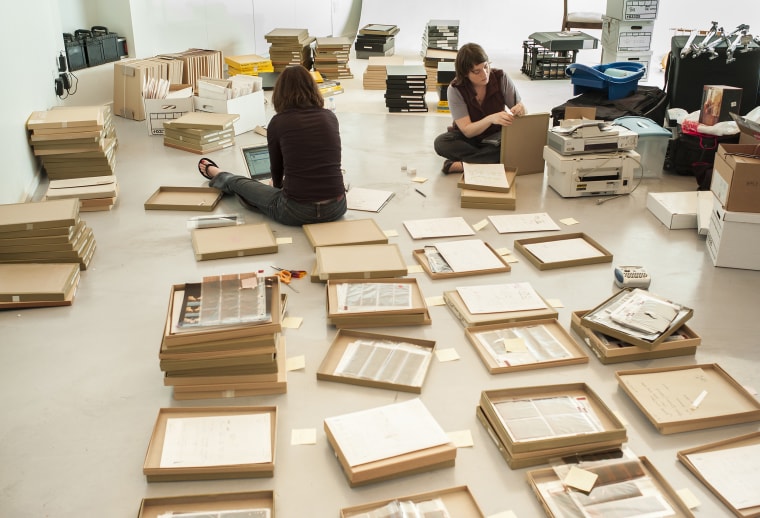Last January, my Christmas gifts prompted my partner and I to commit to a year of not shopping for or buying anything.
It’s not that they were bad gifts: Samir gave me a delicate, ceramic tea set from Wedgewood, in a gorgeous cuckoo pattern, the sort of thing one uses when hosting friends for a cream tea, which is not something I did often. I got him something impractical, too: A wool fisherman’s sweater that is too bulky and too warm for him to really wear comfortably where we live in Arkansas.
The tea set was a good idea, but the small house we were renting barely had enough space for what we already had, and that was even after a deep, satisfying purge of most of our junk before we moved from Virginia.
So, we vowed to stop shopping. We didn’t agree not to buy anything at all, of course; obviously we need things like food and toilet paper and shampoo. But we drew up a contract that outlined what we could and couldn’t buy (which still hangs on our refrigerator): Nothing durable, which meant no clothes, no shoes, no electronics. We could replace things that broke if we really needed them, but we had to try to repair them first.
Our no-shopping year was inspired by an end-of-year essay in the New York Times by Ann Patchett, and we found what she found: It was much easier to not buy anything than you’d guess. Plus, the act of shopping convinces you that you want things you don’t need or really want. Instead, it was immensely comforting to realize, after a few months of making do with what we had, that we actually had everything we needed.
We watched documentaries, especially “The Minimalists,” on people who’d purged the unnecessary junk from their lives, and kept purging throughout the year. We winnowed five bookshelves of books down to less than three. I gave the Goodwill at least five years’ worth of dresses for weddings that I had worn once and then stuffed to the back of my closet. Our combined kitchen gear — which had included two Crock-Pots, two roasting pans and several nice serving bowls and dishes that barely fit our table — was halved.

I’ve never read the Marie Kondo book, “The Life-Changing Magic of Tidying Up,” by which other declutterers swear, but saying goodbye stuff we don’t need has made us happier. Having a de-cluttered, easy to clean and organize house is actually very calming, which I think about a lot when I hear friends casually mention “retail therapy.” Actually, buying things won’t solve your mental health problems (or, at least, it doesn’t solve mine) and possibly creates more.
At first, we kept a list of things we thought we’d buy once the year was up, but a few weeks in, we just… stopped. At the first of the year, Samir was convinced he’d need a record player, but after a few months of not having one, it turns out he didn’t need it after all. The same went for me and my kitchen gadgets: simply allowing myself not to buy them made me realize that I never really needed to buy a strawberry huller, or a fat separator for broths. We stopped even thinking about buying, which cleared up brain space as well as physical space.
There are some items we haven’t been able to avoid purchasing, like new cat litter boxes, in May, for our new kittens; spending the money on that was really painful. And we each had a few slip-ups, buying things that the other person thought violated our agreement, which we worked through. The things we bought — like reusable bottle spouts we could use to turn wine bottles into oil dispensers, and reusable spray bottles — were almost always in the service of reinventing what we already had and wasting less over the long term, and so we forgave each other for keeping with the spirit of the project.
I will admit that there are some ways that I think we’ve probably displaced our consumerist tendencies onto the items we can buy — like fancy treats for our dogs and cats and a pantry full bean pastes, vinegars and soy sauces from the Asian market so that we can recreate our favorite takeout dinners. But for the most part, we’ve become more comfortable in our budget, and reframed our relationship to capitalism.
But I did have one problem at the end of the year, when it was Christmas again, because I expected that my year of decluttering was about to end — and not of my own accord.
The truth is that Christmas has always been fraught for me, and it wasn’t just getting the tea set last year that stressed me out. My mother has always asked my sister and me to make a list of presents we want from her. This seemed incredibly silly to do as an adult because, if I wanted something, I could just buy it for myself. If it was too expensive for me to buy, I wasn’t going to ask my mother to buy it for me.
Also, I’d always thought that it was supposed to be the thought that counts, and that we were supposed to surprise the people love with thoughtful gifts that are personal for them.
All of that was why, for many years, I’d told my mother, truthfully, that I didn’t want anything. Without my guidance, though, she bought me things I really didn’t need — like a Palm Pilot when I already had a smart phone, or a gigantic day planner meant to take up space on a desk I didn’t have. I would stare at those unused items, feel guilty for the money she’d spent while resenting them for taking up valuable space I didn’t have. Eventually, I’d get rid of them, which made me feel guilty, too.
I’ve since realized that buying stuff for me (and the rest of our family) makes my mom happy. She’d grown up incredibly poor on a farm in rural Arkansas and could finally afford to buy what she pleased.
“I just remember being so bored,” she told me recently: She had nothing to play with, nothing to read, no way to while away the hours besides doing the work that kept her and her siblings fed and clothed. It was all drudgery, and no fun.
My parents also struggled financially for most of my childhood, and they tried to shield us from their money problems by filling the space beneath the Christmas tree with presents — usually going into debt to do so — as a kind of intergenerational rebalancing to make up for their own sparse childhoods. I would never make that choice, but it was not my choice to make.
After a year of not purchasing because we chose not to, I gladly accepted new things from my mother. Since I hadn’t bought anything for almost a full year, there were things I truly needed: A new coat, some socks, and a pastry brush to replace the one my kittens mistook for a toy and destroyed.
It still felt weird for me to buy anything for anybody, so I didn’t. Everyone in my family received a donation to a charity made in their name; I picked issues they cared about, and tried to be thoughtful.
The presents we give to people are, it turns out, as much about us as they are about them — and about the relationship we’re fostering by celebrating a holiday together. Our no-buying year was born after the stress of receiving items that my partner and I didn’t really know how to use. And, as it turns out, it has reminded me what a gift can really be.




